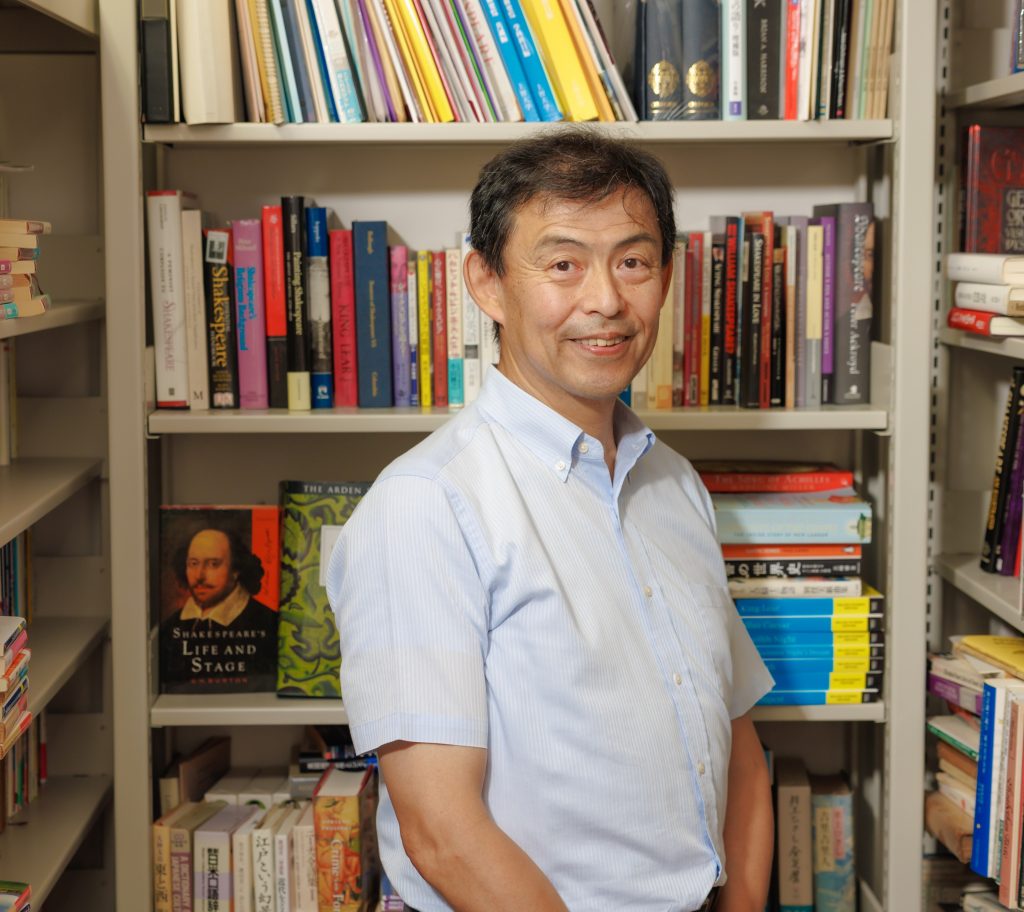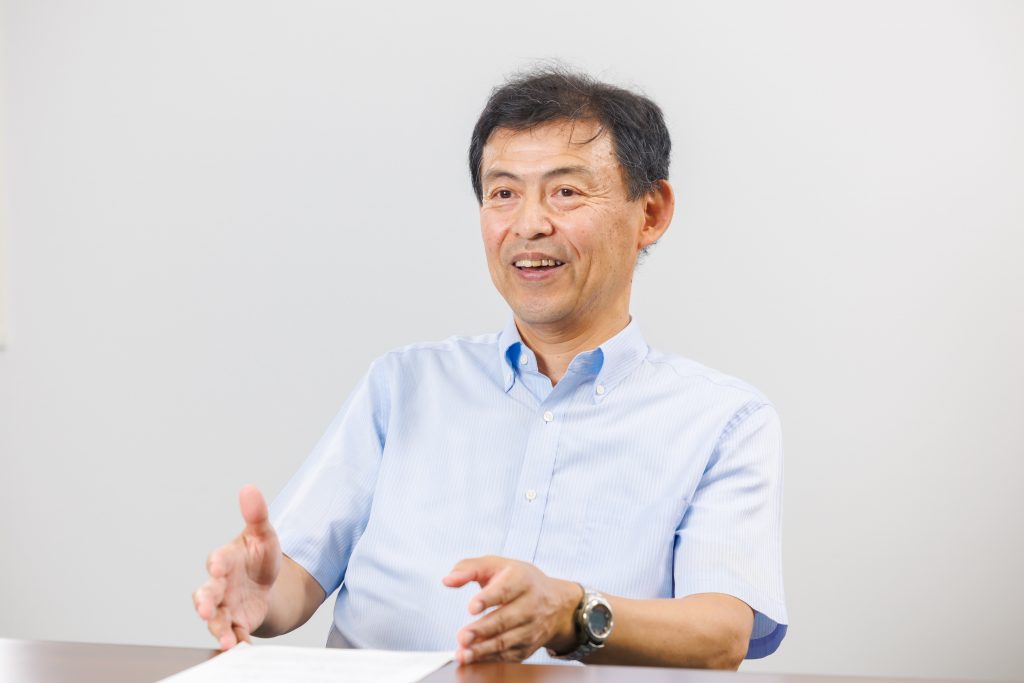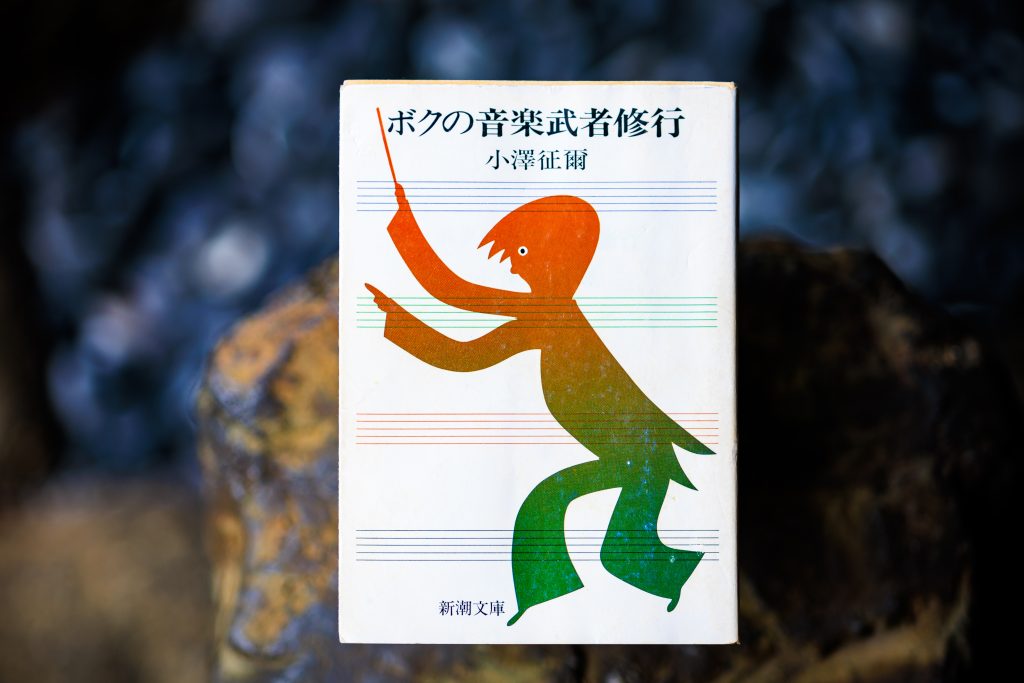
More than 400 years after his death, Shakespeare’s works continue to be read and performed around the world. Faculty of Foreign Studies Professor Takanori Togo, a researcher of Shakespeare, investigates the enduring allure of the playwright and what his works can tell us about modern society.
I specialize in the works of Shakespeare. I think one of Shakespeare’s charms is his genuine depiction of human nature, including the beautiful and the ugly. In the play Macbeth, there is a famous line, “Fair is foul, and foul is fair,” which implies that the good and the bad in people are two sides of the same coin. Indeed, many of Shakespeare’s characters are multifaceted: there are good people with bad qualities and bad people with sympathetic qualities. This multidimensional perspective of human nature is one of Shakespeare’s distinguishing characteristics.
Shakespeare was active during the Renaissance, which marked a transition from the Middle Ages to the modern age. At this time, western Europe was rejecting the absolute authority of the Catholic Church, and heliocentrism had brought about a new understanding of the universe, uprooting entrenched worldviews and value systems of the Middle Ages. Preceding notions of common sense no longer held weight, which led to social divisions over belief systems. In some ways, this period mirrors our current age – “the age of VUCA” – which probably explains why Shakespeare’s works still resonate with us today.
Intellectual curiosity is ever-expanding

To study Shakespeare, one must understand the historical context of the Renaissance, which requires an understanding of Christianity, Greek and Roman culture, the political systems, popular culture, and the state of theatre in England at the time. Furthermore, one should be aware of how Shakespeare has been interpreted and performed over the past 400 years and how his works have been transformed into film and other media adaptations. This ever-expanding thirst for knowledge makes research fun, but it also presents challenges.
What Shakespeare tells us about social forgiveness and reconciliation
My current research theme is “Forgiveness and Reconciliation in Shakespeare.” I am interested in expanding this theme to explore how to bring about tolerance, forgiveness, and reconciliation in society.
Forgiveness and reconciliation are significant themes in Shakespeare’s later works. His late play The Tempest asks to what extent a person can forgive someone who has wronged them or caused considerable harm or emotional pain. The protagonist, Prospero, Duke of Milan, forgives his brother, who once took over the country and exiled him and his daughter. This is because, for Prospero, the act of forgiveness is a necessary step in moving forward.
Christianity’s influence in Europe and the United States has spurred abundant research on social forgiveness and reconciliation in philosophy, theology, psychology, and legal studies. This perspective has not developed in Japan, however. The cycle of revenge is relentless in contemporary society, and in Japan, many people approve of the death penalty and believe that vengeance is justified. Likewise, many believe those who have committed a mistake are undeserving of forgiveness. The generosity that once existed in Japanese society has been lost, making life difficult for everyone.
Shakespeare’s works are grounded in a perspective that accepts people as they are. Rather than through academic papers, my current goal is to release a book that uses Shakespeare as a springboard to spark discussions about forgiveness.
The book I recommend
“Boku no Ongaku Musha Shugyou” (My Musical Odyssey)
by Seiji Ozawa, Shincho Bunko

World-class conductor Seiji Ozawa writes about his youth in this personal memoir. With the mindset that, “If I’m to do Western music, I need to go to the West,” Ozawa boards a freighter and travels through Europe on a scooter. This memoir reminds us of the preciousness of being fearless in pursuing a dream.
-
Takanori Togo
- Professor
Department of English Studies
Faculty of Foreign Studies
- Professor
-
Takanori Togo completed his undergraduate studies at Sophia’s Faculty of Foreign Studies, Department of English Studies in 1987 before obtaining his master’s in English Language Literature at Sophia’s Division of Letters. He subsequently served at The University of Tokushima and started teaching at Sophia in 1992. He assumed his current position in 2008.
- Department of English Studies
Interviewed: July 2024